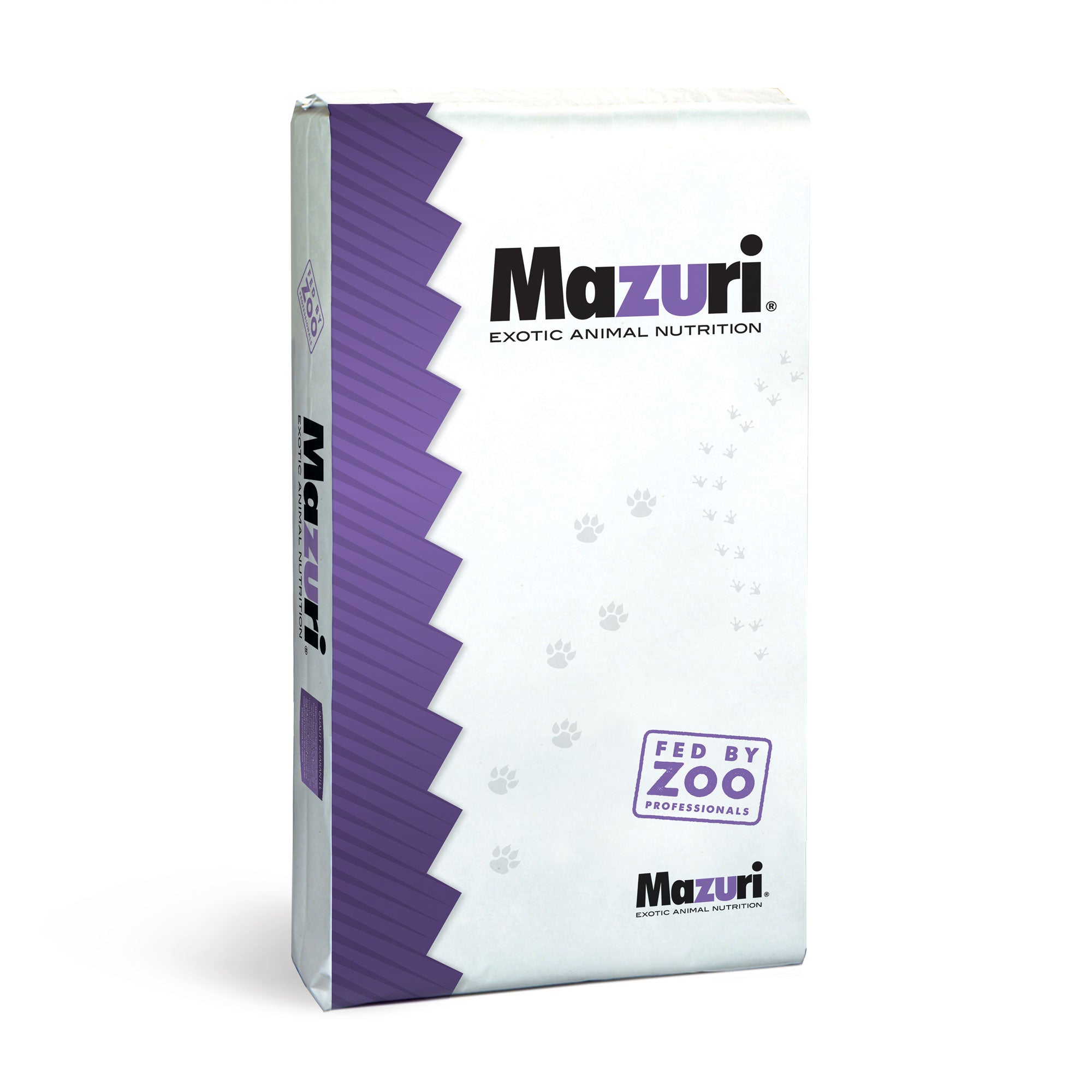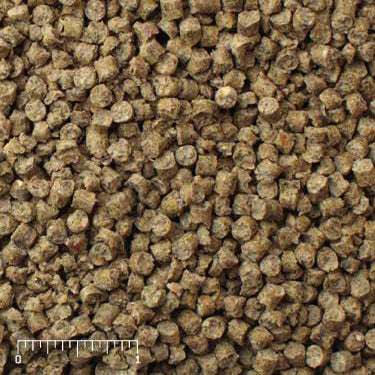Every exotic animal deserves the right nutrition
Crude protein not less than | 21.00% 2.50% 7.00% 12.00% 9.00% 1.35% 1.85% 1.10% 0.51% |
Ground Corn, Dehulled Soybean Meal, Wheat Middlings, Dehydrated Alfalfa Meal, Ground Soybean Hulls, Dicalcium Phosphate, Cane Molasses, Calcium Carbonate, Lignin Sulfonate, Soybean Oil, Salt, Yeast Culture, DL-Methionine, Pyridoxine Hydrochloride, Vitamin E Supplement, L-Ascorbyl-2-Polyphosphate (Vitamin C), Cholecalciferol (Vitamin D3), Menadione Sodium Bisulfite Complex (Vitamin K), Manganese Proteinate, Vitamin A Acetate, Zinc Proteinate, Folic Acid, Copper Proteinate, Manganous Oxide, Zinc Oxide, Calcium Pantothenate, Thiamine Mononitrate, Choline Chloride, Nicotinic Acid (Niacin), Preserved with Mixed Tocopherols, Copper Sulfate, Riboflavin-5-Phosphate, Ferrous Carbonate, Vitamin B12 Supplement, Citric Acid (a Preservative), Zinc Sulfate, Calcium Iodate, Rosemary Extract, Sodium Selenite, Biotin, Cobalt Carbonate.
- Emus - Feed to newly hatched emus until birds reach adult body weight. Feed free-choice or limit-feed to 75% of free-choice consumption depending on facilities and accessibility of chicks to facility.
- Ostriches - Feed free-choice to newly hatched ostrich chicks until approximately 90 days of age or until they reach a bodyweight of 70 lbs., whichever comes first.
- Grit - Use of grit may help in decreasing the incidence of impactions by strengthening the gizzard. Granite grit should be used. Do not use limestone as a source of grit. Grit can be made available to the birds as soon as they are hatched. Mix gritin with the feed (1.5% by weight, example: for every 98 grams of feed, mix in 2 grams of grit). Change the grit size as theanimals grow.
- General recommendation for grit use:
- Hatch to 3 weeks - 2/16" grit (starter size)
- 4 to 7 weeks - 3/16" to 4/16" length, 2/16" width grit (grower size)
- 8 to 16 weeks - 6/16" to 8/16" length, 4/16" width (developer size)
- 16 weeks on - 10/16" to 14/16" length, 6/16" width (turkey size)
Average Feed Weights (note that average feed weights may vary due to method of measuring) | |
Measurement | g of Diet |
¼ cup | 38 |
½ cup | 74 |
1 cup | 164 |
Storage Conditions
For best results, reseal the bag between uses or store contents of open paper sack in container with sealing lid. Store in a cool (75⁰F/24⁰C or colder), dry (approximately 50% RH) location free from rodents and insects. Do not offer moldy or insect-infested feed to animals as it may result in illness, performance loss or death. Freezing will not harm the diet and may extend freshness. Use within 1 year of bag manufacturing or "Best if Used By" date.
Ask Our Experts
Get nutrition advice you can trust from experts who understand the unique nutritional needs and behaviors of your exotic animals.
Get Advice
